Bali, known as the “Island of the Gods,” intrigues many with its ancient temples. These places are not just beautiful buildings. They also show Bali’s deep spirituality and its rich culture. For young travellers, going to these famous temples can be an amazing journey.
Temples in Bali, or “Pura,” are very important. They keep the island’s history, culture, and art alive. For example, Pura Besakih on Mount Agung is a must-see, with its 23 temples. Goa Gajah from the 11th century is fascinating, built with a special entrance to scare evil spirits away. Tirta Empul is known for its holy water showers, and Lempuyang Temple requires a 1,700-step climb, but the view is worth it.
If you like peaceful ponds, Pura Taman Ayun is perfect. For something different, visit Pura Penataran Sasih to see the world’s biggest bronze drum. And don’t miss the beautiful sunsets by the sea at Batu Bolong Temple. Every temple visit is a chance to learn about Bali’s past and its spiritual side. It’s a journey that reveals Bali’s true nature and offers a unique experience for all.
Pura Besakih
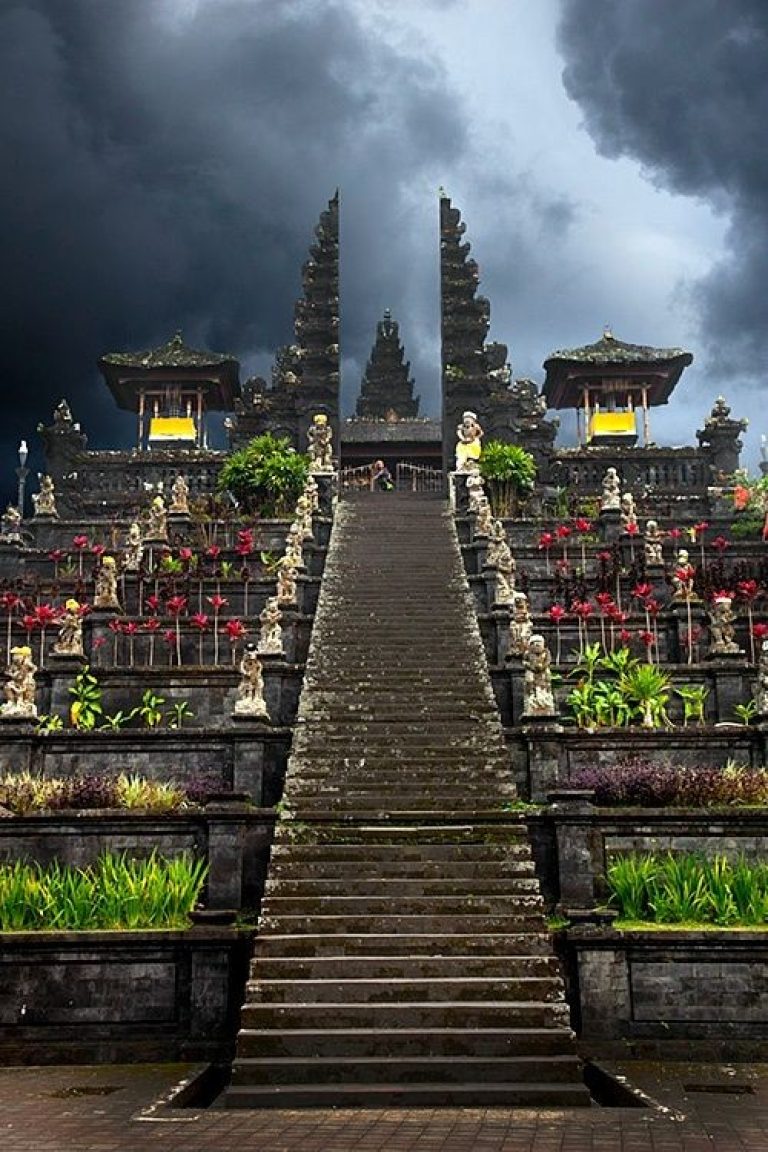
Pura Besakih is the ‘Mother Temple’ in Bali and is found on Mount Agung’s slopes. It consists of 23 different temples, with Pura Penataran Agung being the most notable. This site has been an important pilgrimage spot for over a thousand years in Balinese Hinduism.
Architectural Beauty
Pura Besakih is renowned for its stunning architecture. It features the traditional Balinese Hindu design with structures made of black lava stone. The high pagodas, called merus, display tales from Hindu mythology, such as the Ramayana.
Paras, a local volcanic rock, was used to build the temple. This not only makes the temple fit beautifully into the Balinese scenery but also reflects its strength and longevity.
Cultural Significance
Pura Besakih is not only beautiful but culturally significant. It’s a major site for Hindu rituals. The temple has been added to and maintained with traditional methods since the 8th century.
It has survived volcanic eruptions and earthquakes, preserving its history and spiritual value. Every 210 days, the Panca Bali Krama Festival takes place, attracting many worshippers seeking blessings and health.
Unique Features
Pura Besakih offers unique elements that set it apart in Bali. It’s 900 meters above the sea, with twenty-two temples on six terraces. The Odalan festival, held every 210 days, shows off its vibrant culture.
Its location on Mount Agung’s slopes highlights its sacred importance in Balinese Hinduism. It is easily reachable from Kuta and Klungkung, making it a favoured location to visit.
Here is a structured overview of Pura Besakih’s unique features:
| Feature | Description |
|---|---|
| Architectural Design | Balinese Hindu elements, lava stone, terraced levels, intricate carvings |
| Cultural Significance | Principal Hindu rituals site, evolved since the 8th century, Panca Bali Krama Festival |
| Unique Characteristics | Twenty-two temples, six terraces, Mount Agung slopes, Odalan festival |
Ulun Danu Beratan Temple
The Ulun Danu Beratan Temple ranks among Bali’s top temples. It lies in a peaceful spot by Lake Beratan. This place honours Dewi Danu, the water goddess, and helps water the area.
Stunning Location
This temple is on Lake Beratan’s west coast, 1,200 meters up. Its view is breathtaking. The mix of water, ancient Hindu temples, and spiritual vibe is magical. It’s a Bali gem for those seeking beauty and peace.
Spiritual Importance
For Balinese locals, the Ulun Danu Beratan Temple is a spiritual heart. They come to pray for water blessings. Its spiritual energy, connected to nature, deeply moves people. The temple includes important sites like Linga Pura, adding to its spiritual richness.
Tourist Attraction
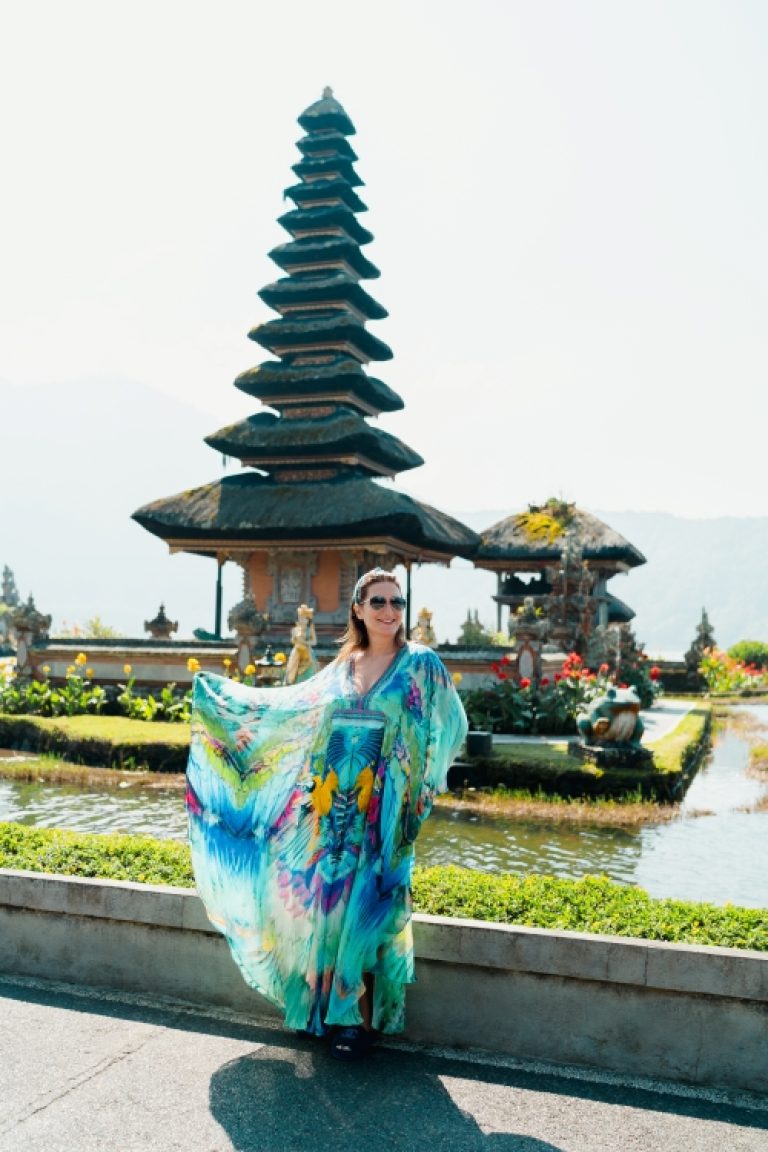
Visitors worldwide come to the Ulun Danu Beratan Temple. Its beauty, cultural value, and unique floating shrines draw them. The entrance fee is 75,000 IDR, and it’s open from 7 AM to 7 PM. Many tours take you there, and a private driver can make your visit smooth and affordable.
Tanah Lot Temple
The Tanah Lot Temple is a must-see in Bali. It stands out for its setting out at sea and sunsets. You can find it 20 kilometers northwest of Kuta. It’s easy to get there by car, motorbike, or with a local taxi.
Iconic Landmark
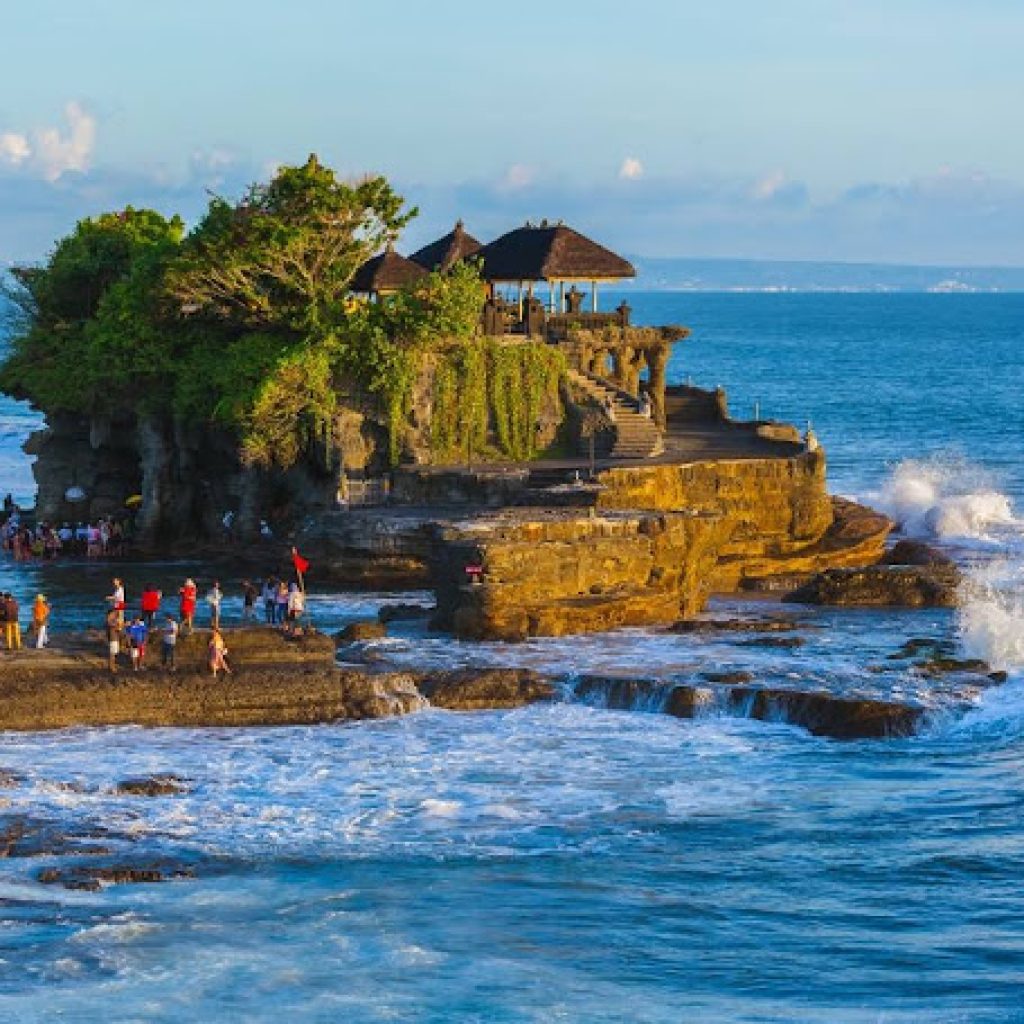
Built in the 16th century, a priest placed the Tanah Lot Temple on a rock in the Indian Ocean. Its beauty and location make it one of Bali’s most stunning temples.
Mythological Importance
According to myths, sea snakes protect the temple from bad spirits. This adds to its spiritual charm, combining natural beauty with deep culture.
Visitor Experience
Check the tide before you go. The temple is best seen at low tide. It has parking, restrooms, and places to eat local food.
Guided tours are a great way to learn more. Wear clothes that cover shoulders and knees. You can rent sarongs and sashes at the entrance.
The temple is open from 7 a.m. to 7 p.m. You pay to enter, with discounts for kids. Early morning or late afternoon are the best times to visit. These times offer great views and fewer people.
| Aspect | Details |
|---|---|
| Location | 20 km northwest of Kuta, in Beraban Village |
| Travel Time from Kuta | Approximately 45 minutes, depending on traffic |
| Opening Hours | 7 a.m. to 7 p.m. daily |
| Entrance Fee | IDR 75,000 for adults, IDR 40,000 for children |
| Best Times to Visit | Early morning and late afternoon |
| Visitor Facilities | Parking, restrooms, local eateries, informational displays, guided tours |
Tanah Lot Temple is not just about its stunning looks. It carries deep meaning and offers a memorable visit for anyone.
Uluwatu Temple
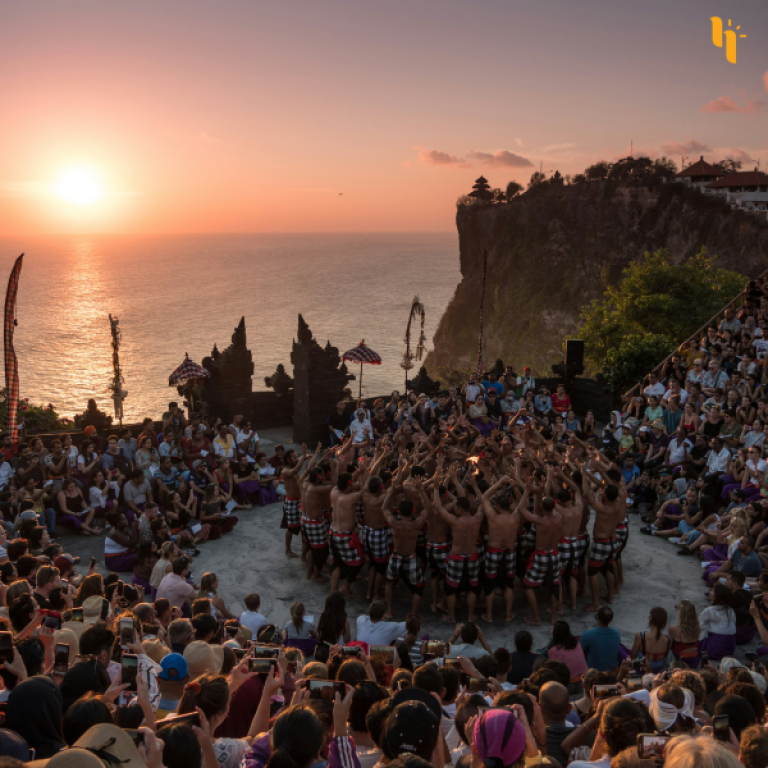
Uluwatu Temple stands on a cliff 70 meters high above the Indian Ocean. It is a top temple in Bali, famous for its stunning views and natural surroundings. The ocean views from here are amazing, making it popular among both worshippers and tourists.
It was built in the 10th century and is one of Bali’s most important places of worship, known as a Sad Kahyangan. The temple is known for its unique coral brick architecture, showing the combined influences of Javanese and Balinese cultures. It also houses ancient megalithic remains.
The temple is known for its monkeys, thought to guard against bad spirits. This adds to its special atmosphere. The Kecak dance, performed at sunset, is a must-see. It adds cultural and entertainment value to the site.
The temple is open from 09:00 AM to 07:00 PM. It’s open for worship at all times. The entrance fee is IDR 15,000 for locals and IDR 30,000 for foreigners. For a Balinese dance show in high season, tickets are 100,000 IDR (around 6-7 Euro).
Getting to the temple is easy, just a 45-minute ride from the airport and Kuta. Visitors must dress conservatively and wear a sarong, which you can rent at the entrance.
| Feature | Details |
|---|---|
| Opening Hours | 09:00 AM – 07:00 PM (daily) |
| Entrance Fee | IDR 15,000 (domestic), IDR 30,000 (foreigners) |
| Dance Performance Ticket | 100,000 IDR |
| Distance from Denpasar Airport/Kuta | 45 minutes by road |
| Height Above Sea Level | 70 meters |
Uluwatu Temple is rich in culture and beauty. It attracts those interested in culture and stunning views. It is both a spiritual centre and an amazing place to admire Bali’s landscapes.
Goa Gajah Temple
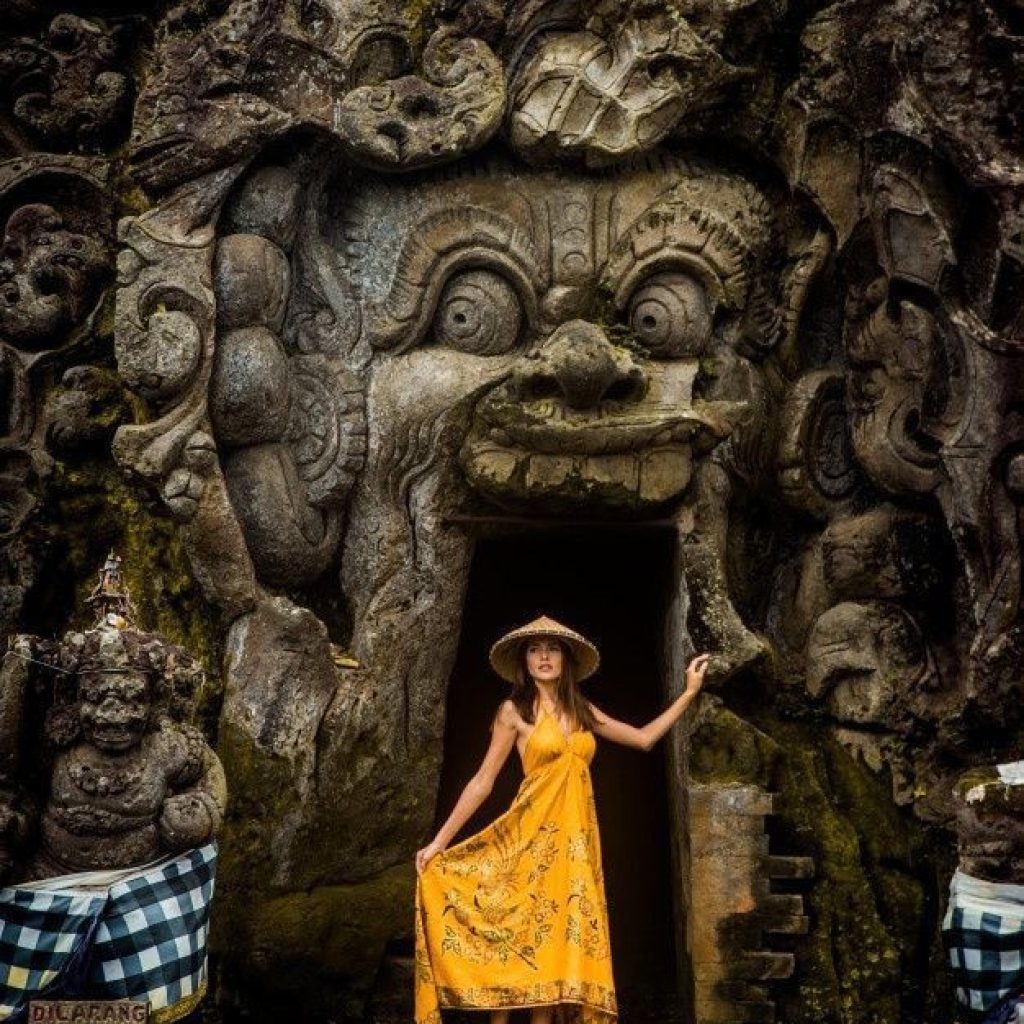
Goa Gajah Temple, known as the Elephant Cave, is a historic wonder in Bali. It dates back to the 11th century. The temple’s design is unique, aimed at keeping evil spirits away.
It’s not just a worship site. It’s a sanctuary telling Bali’s spiritual and cultural story. The temple has amazing carvings and statues. They represent India’s seven holy rivers.
The complex features a cave for meditation, pools for bathing, and fountains. This shows how Hindu and Buddhist beliefs mix here. At the entrance, there are giant, stone faces. They give the place a mystical vibe.
Goa Gajah is peaceful, surrounded by rice fields and streams. It’s a great place to think and relax. The temple is only 6 kilometres from Ubud. This makes it an easy visit for people staying in Ubud.
The entry fee is IDR 50,000 per person. It’s open all day for Hindu worshippers. But non-Hindu visitors are welcome between 8 a.m. and 5 p.m.
To visit, wear clothes that cover shoulders and legs. You can rent or buy proper attire at the temple. Goa Gajah is full of history and culture. It’s a top temple to see in Bali.
| Temple | Entry Fee (Domestic Tourists) | Entry Fee (Foreign Tourists) |
|---|---|---|
| Tanah Lot Temple | IDR 30,000 (Adults), IDR 15,000 (Children) | IDR 60,000 (Adults), IDR 30,000 (Children) |
| Ulun Danu Beratan Temple | IDR 7,500 | IDR 10,000 |
| Tirta Empul Temple | IDR 15,000 per person | IDR 15,000 per person |
| Lempuyang Temple | IDR 15,000 per person | IDR 15,000 per person |
| Uluwatu Temple | IDR 30,000 (Adults), IDR 20,000 (Children) | IDR 30,000 (Adults), IDR 20,000 (Children) |
| Pura Taman Ayun | IDR 20,000 (Adults), IDR 10,000 (Children) | IDR 20,000 (Adults), IDR 10,000 (Children) |
| Besakih Temple | IDR 15,000 per person | IDR 15,000 per person |
| Goa Gajah Temple | IDR 50,000 per person | IDR 50,000 per person |
Tirta Empul Temple
The Tirta Empul Temple is truly special, found just 14 km northeast of Ubud. It was built in 926 A.D. and is known for its holy spring water. This water attracts both locals and visitors for a special purification ritual. It’s a place people come for religious ceremonies. It even welcomed Barack Obama and his family in 2017.
Purification Rituals
At Tirta Empul, there’s a special way to purify your spirit. A big pool with crystal clear spring water is its heart. People can bath there, which is thought to wash away impurities from both body and soul. This ritual has a deep meaning and spiritual purpose.
Architectural Layout
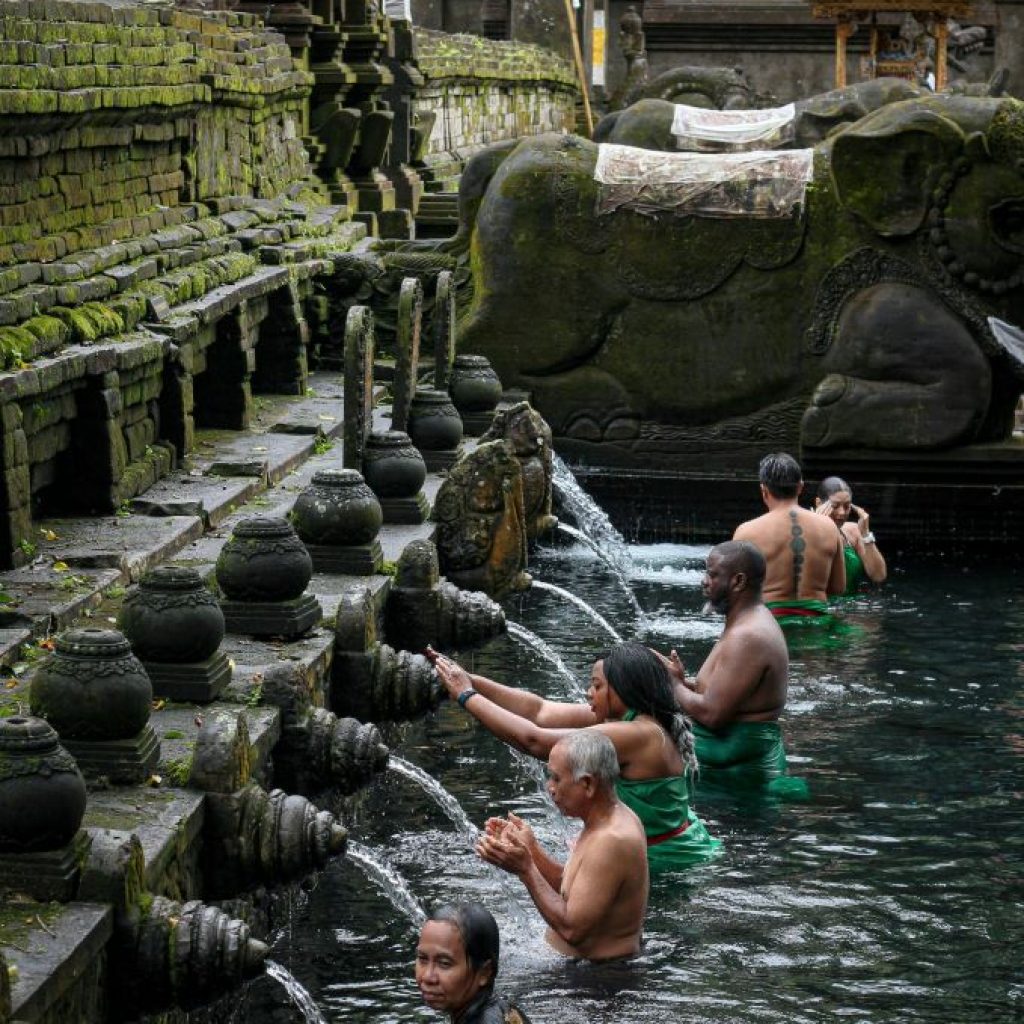
The architecture of Tirta Empul is stunning. It’s laid out with three special courtyards, each unique. There are also springs, baths, and pools. This shows Bali’s bond with water. To see it all, you’ll need 30 minutes to an hour. This shows how large and full of experiences this place is.
Historical Value
Tirta Empul is not just a pretty place; it’s packed with history. It’s in Manukaya Village, part of Gianyar Regency’s Tampaksiring District. Its ancient history reflects Bali’s long spiritual tradition. It’s a key place for both worship and historical learning about Bali.
To visit, there are many affordable options. You can rent a scooter for around 50K–70K rupiahs a day. Or, choose a car from 215K to 5 million rupiahs, depending on the type. For an easier visit, you can also join a tour. By scooter, car, or with a guide, it takes about 30 minutes from Ubud.
| Aspect | Details |
|---|---|
| Founding Year | 926 A.D. |
| Location | 14 km northeast of Ubud |
| Travel Time | Approx. 30 minutes from Ubud |
| Scooter Rental Cost | 50K – 70K rupiahs/day |
| Car Rental Cost | 215K – 5 million rupiahs |
| Tourist Visits | Visited by Barack Obama & family in 2017 |
Lempuyang Temple
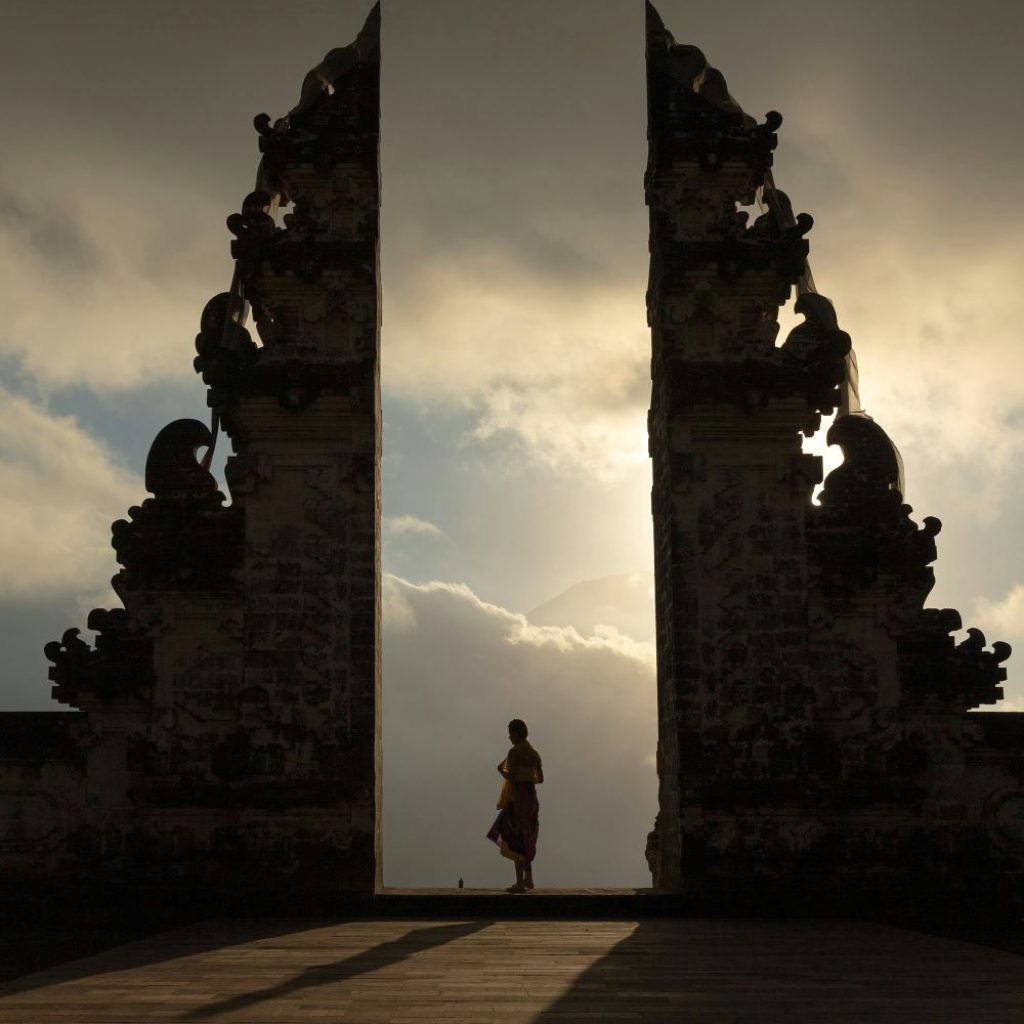
Lempuyang Temple is recognised as a top temple in Bali, also known as Pura Luhur Lempuyang. It sits high on the slopes of Mount Lempuyang in East Bali. This area is famous for its deep spiritual roots and stunning architecture. The temple, made up of seven different temples, invites visitors on a journey of both climbing and spiritual growth.
Gateway to Heaven
Known as the “Gateway to Heaven,” Lempuyang Temple is famous for a gate that appears to cut Mount Agung in half. Many see this split gate as a bridge between the natural and sacred worlds. It’s a favourite place for people to visit and take photos because of the amazing view. The design of the gate symbolises a spiritual pathway to higher awareness and understanding.
Spiritual Journey
Getting to Lempuyang Temple is a spiritual experience itself. To reach the main temple, visitors have to climb over 1,700 steps. This journey is like the Balinese quest for spiritual growth and balance. Walking through green forests, visitors find moments for quiet thought. This journey is said to mirror the path to achieving spiritual light.
Lempuyang Temple is important culturally, linked to the Balinese god Iswara and Pura Kahyangan Padma Bhuwana in the East. Its mix of Hindu and Balinese traditions keeps its spirit alive. The temple has been well taken care of, so it continues to be a special place for worshippers and visitors, drawing people from all over every year.
| Feature | Description |
|---|---|
| Location | Mount Lempuyang, Karangasem Regency, East Bali |
| Elevation | 1175 metres above sea level |
| Main Attraction | ‘Gates of Heaven’ offering views of Mount Agung |
| Stairs | Approximately 1,700 to the main temple |
| Opening Hours | 7 a.m. to 7 p.m. daily |
| Entrance Fee | 100,000 IDR per person |
| Shuttle Bus Fee | 50,000 IDR per person |
Conclusion
Bali, known as “The Island of Gods,” draws people in with its stunning temples. These places are not just old landmarks. They are lively places of worship. They show the Balinese belief in living in harmony with others, the gods, and nature. Each temple faces the sea or mountains, showing deep respect for the power of nature.
These temples are not only beautiful but also meaningful. They have traditional Balinese designs like levels and carvings. They follow the idea of ‘kaja-kelod,’ pointing to where gods and evil spirits are. Inside, you’ll find many deities, spirits, and myths. This shows how rich Bali’s spirituality is. Events like Puja, offerings, and dances are important at these temples, strengthening the island’s culture.
For tourists, visiting these temples is a special experience. Taking part in rituals like ‘canang sari’ helps to feel kind and thankful. The peacefulness of these places makes you think and be aware of the moment. Famous places like Tanah Lot and Lempuyang Temple are known for their beauty. They offer a mix of culture and spiritual insight. Bali’s temples combine stunning design, spiritual traditions, and local celebrations. They deeply impact everyone who visits.
FAQ
What are the most important temples in Bali?
The important temples in Bali include Pura Besakih, known as the ‘Mother Temple.’ It also has Tanah Lot Temple. This temple is famous for its location by the sea and views of the sunset.
Which temple in Bali is known as the Mother Temple?
Pura Besakih is called the Mother Temple. It sits on Mount Agung’s slopes. The complex has 23 separate temples.
What makes Ulun Danu Beratan Temple a must-see attraction?
Ulun Danu Beratan Temple sits by Lake Beratan. It honours the water goddess, Dewi Danu. Its unique design and natural beauty draw visitors.
Why is Tanah Lot Temple famous?
Tanah Lot Temple stands in the sea. It’s known for its sunsets. The temple’s surroundings, like rock formations and sea snakes, are linked to myths.
What unique features does Uluwatu Temple offer?
Uluwatu Temple treats visitors to cliffside, ocean views. They can see Kecak dances and meet protective monkeys. It’s among Bali’s temples said to keep away evil spirits.
What can visitors experience at Goa Gajah Temple?
At Goa Gajah Temple, visitors find the historic Elephant Cave. Inside is a place for meditation. There are pools and fountains. The temple is surrounded by beautiful rice fields and streams.
What rituals take place at Tirta Empul Temple?
Tirta Empul Temple is famous for its purification ceremonies. People can join in these cleansing rituals. They use the holy spring water for spiritual purification.
What is Lempuyang Temple known for?
Lempuyang Temple is known as the “Gateway to Heaven.” It’s famous for its views of Mount Agung. A spiritual journey involves climbing over 1,700 steps to its peak.


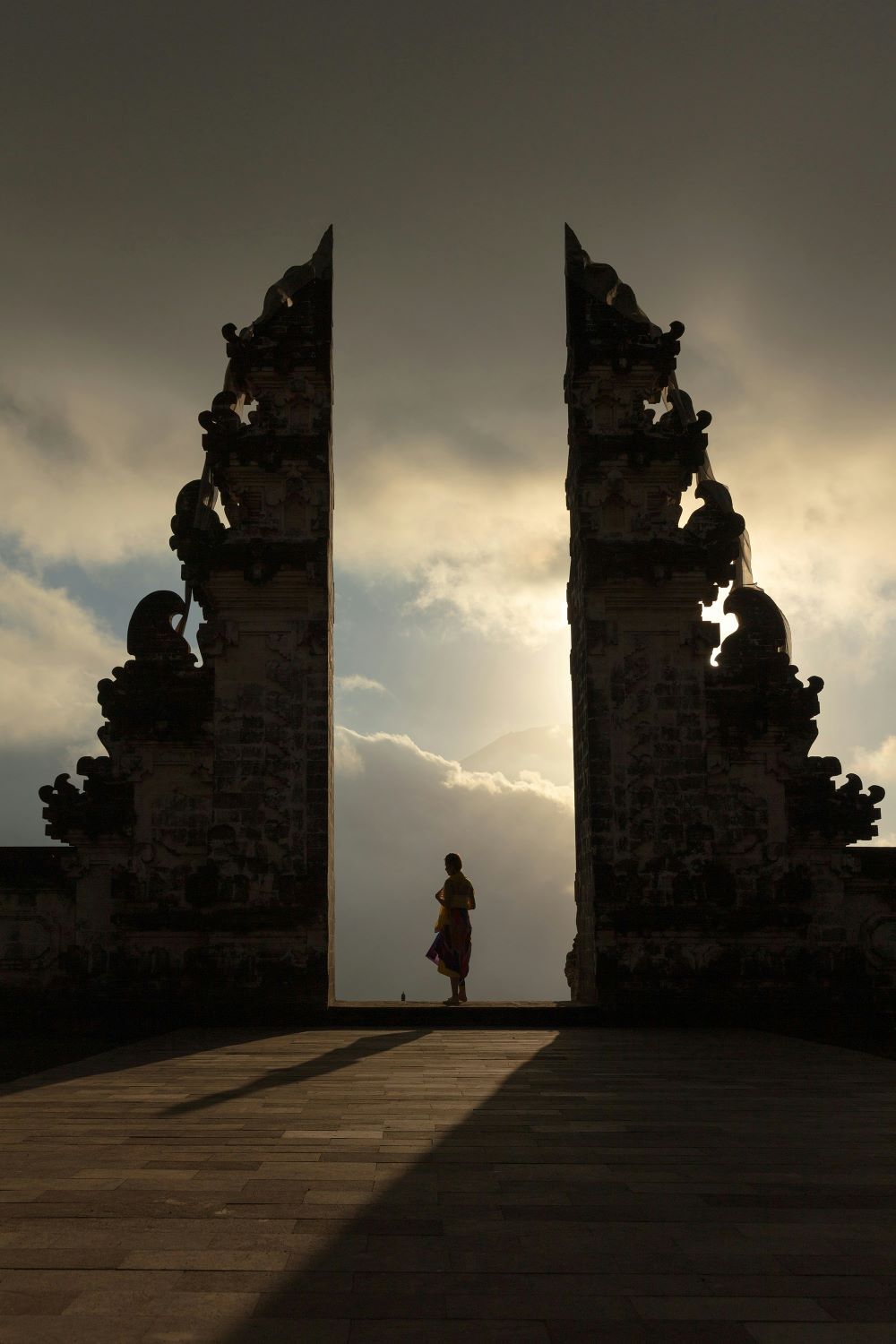
1 Comment